
 |
|
|
#1 |
|
Senior Member
Join Date: August 26, 2007
Location: Palominas, AZ
Posts: 221
|
44 Mag practice ammo?
Does anyone make 44 Mag ammo that's on the milder side for practice purposes?
__________________
Mark Dickinson USAF, Retired |
|
|
|
|
#2 |
|
Senior Member
Join Date: June 5, 2009
Location: Milwaukee, WI
Posts: 1,093
|
Blazer aluminum is pretty mild IMO. Not the most accurate stuff in the world, but perfectly good for range fodder.
44 spl, if you can find it, is very mild. Otherwise, it's one of those calibers that may be worth reloading if you shoot it enough. |
|
|
|
|
#3 |
|
Senior Member
Join Date: July 11, 2009
Posts: 389
|
This is what started me in reloading. Bought a .44 mag and did not want to shoot full blown .44 magnum ammo all the time.
Bought a 200 gr full wadcutter bullet mold and plinked away. I never thought about saving money, just started reloading so I could shoot the type of loads I want.
__________________
My posts are things I have tried or experienced. You may or may not wish to emulate them so read them with this in mind. Compromise means that both sides give something, but they never give, they just take. I'm The NRA! |
|
|
|
|
#4 |
|
Senior Member
Join Date: February 23, 2005
Posts: 13,195
|
Sure, its called .44 spl ......or call 1 - 800 - Dillon Precision to order your reloading press ...( which is what I did ).
|
|
|
|
|
#5 |
|
Senior Member
Join Date: August 26, 2007
Location: Palominas, AZ
Posts: 221
|
I started out determined to get a .45 Colt, but I'm finding out that 44M ammo is easier to find and cheaper. The only 2 44's I've shot jolted me a bit, so I wanted to ease into it. They were a Taurus Raging Bull and a Taurus Tracker.
__________________
Mark Dickinson USAF, Retired |
|
|
|
|
#6 |
|
Senior Member
Join Date: November 2, 2005
Posts: 1,196
|
The only way you're going to shoot that .44 cheaply is to reload.
|
|
|
|
|
#7 |
|
Senior Member
Join Date: April 22, 2007
Posts: 1,996
|
|
|
|
|
|
#8 |
|
Senior Member
Join Date: August 26, 2007
Location: Palominas, AZ
Posts: 221
|
Those are some really good prices. Thanks for the link.
__________________
Mark Dickinson USAF, Retired |
|
|
|
|
#9 |
|
Senior Member
Join Date: January 24, 2009
Location: Anchorage Alaska
Posts: 3,341
|
Considering taking up reloading?
Considering taking up reloading?
You need knowledge. About the process, about the load recipes that are safe and about the tools. A mentor would be nice. At a bare minimum, You need 3 tools, without which it is physically impossible to load, but unwise until you also have some good judgement. You know where good judgement comes from? Good judgement comes from bad experiences. You know where bad experience comes from? Bad judgement. The wise man learns from his experience. The TRULY wise man learns from the experiences of others. So, read manuals and threads and talk to experienced loaders wherever you can. The three tools: A press, because fingers are not strong enough to form metal. Dies for 9mm because fingers are not accurate enough to form metal to fit. You need a way to mete powder (most likely a scale, but some use calibrated dippers). Other tools can wait until you discover the need for them. Except for certain things without which it is possible to load, but foolish. Eye protection. Calipers. Notebook. Dropcloth. Stuff like that. Calipers, because not all components you buy are exactly the right size and when you load, you are changing some sizes and need to measure seating depth, cartridge overall length, etc. Bullet puller because eventually you will assemble a cartridge you don't want to shoot for some reason. Other tools as you find the need. Manuals and instruction books. Lots of manuals. And web sites. Reliable ones, like the bullet manufacturers and powder manufacturers, not someone who doesn't have "skin in the game". The early chapters of manuals are devoted to "how to load" information and the rest are load recipes. The bullet and powder manufacturers have lots of good advice and load recipes specific for their products. The excellent tome "ABC's of Reloading" has no load recipes, but excellent descriptions of the loading process, written by a selection of different authors. Casual sources (like forums) are good sources of education and information, but you have to verify everything you find from casual sources. Remember, only believe half of what you see and one quarter of what you hear. That goes double for what you get from the internet. Even this post. Maybe especially this post. Do your own independent, confirming research when ANYONE gives you new facts on the web. Also remember, even the idiotic stuff might have a kernel of truth buried in there somewhere. I have compiled a few web sites that seem to have some good information (some of which came from me). Go get a large mug of whatever you sip when you read and think and visit these sites. For the New Reloader: Thinking about Reloading; Equipment Basics -- READ THIS FIRST http://www.thehighroad.org/showthread.php?t=238214 I am looking at getting into reloading for the first time http://www.thehighroad.org/showthread.php?t=658971 Just bought my first press. Needs some info tho. http://www.thehighroad.org/showthread.php?t=659358 Considering reloading http://thefiringline.com/forums/showthread.php?t=488115 Budget Beginning Bench you will never outgrow, for the novice handloader. http://rugerforum.net/reloading/2938...andloader.html Thoughts on The Lee Classic Turret Press http://www.rugerforum.com/phpBB/viewtopic.php?t=135951 Interested in reloading http://www.rugerforum.com/phpBB/viewtopic.php?t=13543 Newby needs help. http://thefiringline.com/forums/showthread.php?t=430391 I hope you enjoy the reading. Thanks for asking our advice. Lost Sheep |
|
|
|
|
#10 |
|
Senior Member
Join Date: January 24, 2009
Location: Anchorage Alaska
Posts: 3,341
|
10 Advices for the Novice Hanloader
Anyone who can follow a recipe in the kitchen or change a tire can handload safely. It just takes care and a bit of humility. Handloading is not rocket science, but it does involve smoke and flame and things that go very fast.
I have thought of a few things I think are useful for handloaders to know or to consider which seem to be almost universal, so I put together this list. So much is a matter of personal taste and circumstance, though. So, all advice carries this caveat, "your mileage may vary". Now, here are my Ten Advices. Advice #1 Use Reliable Reference Sources Wisely - Books, Videos, Web Sites, etc. Study up in loading manuals until you understand the process well, before spending a lot of money on equipment. I found "The ABC's of Reloading" to be a very good reference. Short on loading data but full of knowledge and understanding of the process. Check out offerings in your local library. Dated, perhaps but the basics are pretty unchanging. I am told the older editions are better than the newer ones, so the library is looking even better. Read as many manuals as you can, for the discussion of the how-to steps. What one manual covers thinly, another will cover well. As far as load data in older manuals, the powder manufacturers and bullet manufacturers may have better information and their web sites are probably more up to date. But pay attention to what the ammunition was test-fired from. (regular firearm vs a sealed-breech pressure test barrel, for example) The reason you want more than one or two manuals is that you want to read differing authors/editors writing styles and find ones that "speak" to you. You also get better coverage of the subject; one author or editor may cover parts of the subject more thoroughly than the others. The public library should have manuals you can read, then decide which ones you want to buy. There are instructional videos now that did not exist in the '70s when I started. Richard Lee's book "Modern Reloading" has a lot of food for thought, and does discuss the reasoning behind his opinions (unlike many manuals, and postings). Whether right or wrong, the issues merit thought, which that book initiates. It is not a simple book, though and you will find it provocative reading for many years. Only after you know the steps can you look at the contents of of a dealer's shelves, a mail-order catalog or a reloading kit and know what equipment you want to buy. If you are considering a loading kit, you will be in a better position to know what parts you don't need and what parts the kits lack. Advice #2 All equipment is good. But is it good FOR YOU? Almost every manufacturer of loading equipment makes good stuff; if they didn't, they would lose reputation fast and disappear from the marketplace. Better equipment costs more generally. Cast aluminum is lighter and less expensive but not so abrasion resistant as cast iron. Cast iron lasts practically forever. Lee makes good equipment, but is generally considered the "economy" equipment maker, though some of their stuff is considered preferable to more expensive makes. Just think about what you buy. Ask around. Testimonials are nice. But if you think Ford/Chevy owners have brand loyalty, you have not met handloaders. Testimonials with reasoning behind them are better. RCBS equipment is almost all green, Dillon, blue, Lee red. Almost no manufacturers cross color lines and many handloaders simply identify themselves as "Blue" or whatever. Make your own choices. On Kits: Almost every manufacturer makes a kit that contains everything you need to do reloading (except dies and the consumables). A kit is decent way to get started. Eventually most people wind up replacing most of the components of the kit as their personal taste develops, but you will have gotten started, at least. Advice #3 While Learning, don't get fancy Progressive or Single Stage? Experimental loads? While you are learning, load mid-range at first so overpressures are not concerns. Just concentrate on getting the loading steps right and being VERY VERY consistent (charge weight, crimp strength, seating depth, primer seating force, all that). Use a "fluffy" powder that is, one that will overflow your cartridge case if you mistakenly put two powder charges in it. Learn on a single stage press or a turret press. Do not learn on a progressive press. Too many things happen at the same time, thus are hard to keep track of. Mistakes DO happen and you want to watch for them ONE AT A TIME. Until handloading becomes second nature to you. Note: A turret press is essentially a single stage press with a moveable head which can mount several dies at the same time. What makes it like a single stage rather than a progressive is that you are still using only one die at a time, not three or four dies simultaneously at each stroke. Also, a good, strong, single stage press is in the stable of every reloader I know, no matter how many progressives they have. They always keep at least one. Advice #4 Find a mentor. There is no substitute for someone watching you load a few cartridges and critiquing your technigue BEFORE you develop bad habits or make a dangerous mistake. (A mistake that might not have consequences right away, but maybe only after you have escaped trouble a hundred times until one day you get bit, for instance having case lube on your fingers when you handle primers 99 times, no problem because primers are coated with a sealant, but the hundredth primer may not be perfectly sealed and now winds up "dead") I started loading with the guy who sold me my press watching over my shoulder as I loaded my first 6 rounds to make sure I did not blow myself up, load a powderless cartridge or set off a primer in the press. I could have learned more, faster with a longer mentoring period, but I learned a lot in those first 6 rounds, as he explained each step. I educated myself after that. But now, on the internet, I have learned a WHOLE LOT MORE. But in-person is still the best. After you have been mentored, mentor someone else. Not necessarily in loading or the shooting sports, but in SOMETHING in which you are enthusiastic and qualified. Just give back to the community. Advice #5 Design your loading space for safety, efficiency, cleanliness When I started reloading, I did not use a loading bench at all. I just mounted the press on a 2" x 6" plank long enough to wedge into the drawer of an end table My loading gear all fit in a footlocker and spread out on the coffeetable and the lid of the footlocker. Good leverage meant the table did not lift or rock. I still use the same plank, but now it is mounted in a Black & Decker folding workbench. A loading bench "bolted to the center of the earth" (as some describe thier setups) would be more stable, but I do not feel deprived without it. You will probably spill powder or drop a primer eventually, so consider what you have for a floor covering when you pick your reloading room/workspace. I would not try to vacuum up spilt gunpowder unless using a Rainbow vacuum which uses water as the filter medium. Advice #6 Keep Current on loading tecnology Always use a CURRENT loading manual. Powder chemistry has changed over the years. They make some powders differently than they used to and even some powder names may have changed. However, if you are using 10 year old powder, you may want to check a 10 year old manual for the recipe. Then double check with a modern manual andthen triple check with the powder maker. Read previous threads on reloading, here are a couple I read. http://forums.accuratereloading.com/eve http://www.rugerforum.com/phpBB/viewtopic.php?t=13543 http://www.rugerforum.com/phpBB/view...fbd5ae1f754eec The second one is a thread started by a new recruit to reloading which the moderators thought highly enough of to make it "sticky" so it stays on the top of the list of threads. Advice #7 You never regret buying the best (but once) When you buy the very best, it hurts only once, in the wallet. When you buy too cheaply it hurts every time you use the gear. The trick is to buy good enough (on the scale between high quality and low price) to keep you happy without overpaying. Advice #8 Tungsten Carbide dies (or Titanium Nitride) T-C dies instead of regular tool steel (which require lubrication for sizing your brass) for your straight-walled cartridge cases. T-C dies do not require lubrication, which will save you time. Carbide expander button for your bottlenecked cases. Keeps lube out of the inside of the cases. Advice #9 Safety Always Safety All Ways. Wear eye protection, especially when seating primers. Gloves are good, too, especially if using the Lee "Hammer" Tools. Children (unless they are good helpers, not just playing around) are at risk and are a risk. Pets, too unless they have been vetted (no, not that kind of vetting). Any distractions that might induce you to forget charging a case (no charge or a double charge, equally disturbing). Imagine everything that CAN go wrong. Then imagine everything that you CAN'T imagine. I could go on, but it's your eyes, your fingers, your house, your children (present of future - lead is a hazard, too. Wash after loading and don't eat at your bench). Enough said? Advice #10 Verify for yourself everything you learn. Believe only half of what you see and one quarter of what you hear. That goes double for everything you find on the internet (with the possible exception of the actual web sites of the bullet and powder manufacturers). This advice applies to my message as much as anything else and especially to personal load recipes. Hare-brained reloaders might have dangerous habits and even an honest typographical error could be deadly. I heard about a powder manufacturer's web site that dropped a decimal point once. It was fixed REAL FAST, but mistakes happen. I work in accounting and frequently hit "7" instead of "4" because the are next to each other on the keypad. Good luck. Lost Sheep |
|
|
|
|
#11 |
|
Senior Member
Join Date: October 24, 2010
Location: Austin, Texas
Posts: 3,318
|
Georgia Arms and ReedsAmmo.com
|
|
|
|
|
#12 |
|
Senior Member
Join Date: April 25, 2010
Location: Arkansas
Posts: 3,309
|
I don't read real long posts so may be repeating what others said.
I shot my .44 mag. Ruger Redhawk thousands of rounds per year, mostly in competition. I could not have done it or afforded it without reloading. I mostly used 215 gr. Keith style hard cast SWCs and my own load. |
|
|
|
|
#13 |
|
Senior Member
Join Date: March 14, 2011
Location: South Dakota
Posts: 148
|
Lost Sheep,
That's a good read. Thanks. Brad |
|
|
|
|
#14 |
|
Senior Member
Join Date: August 26, 2007
Location: Palominas, AZ
Posts: 221
|
Thanks for the advice and especially the links, Lost Sheep. I have done some reloading. Not a lot, but enough to have respect for things that go boom. I started with a Lee loader for .38 special and a copy of Richard Lee's book. I really liked using the Lee Loader. I used recipes from the included load card, which are pretty conservative.
Then I got a set of dies and the Lee hand press. I actually think it's more difficult to use the press although it's much quieter  I recently got a turret press from my boss as part of a trade. He's been reloading since the '60s so he's got good info and he loads conservatively. I recently got a turret press from my boss as part of a trade. He's been reloading since the '60s so he's got good info and he loads conservatively.No more ammo than I expect to need for the new gun when I get it, I'm thinking of getting another Lee Loader and a hand priming tool. Question: while we're on the subject, what's the best way to set seating depth the same every time? I've thought of using a metal rod cut to the OAL that I want and using it as sort of a gauge. Maybe a bullet seated and crimped really well in its case would be just as good or better. I'm not confident to go by 'feel'.
__________________
Mark Dickinson USAF, Retired |
|
|
|
|
#15 |
|
Senior Member
Join Date: December 24, 2011
Posts: 163
|
For a factory round, I second the Blazer 240gr loading in an aluminum case. It is quite a bit softer than any other factory 240 I have shot. I like it.
|
|
|
|
|
#16 |
|
Senior Member
Join Date: August 23, 2008
Location: SoCal
Posts: 6,442
|
With home cast bullets, I reload lite .44 Mag plinkers for little more than the cost of .22LRs.
|
|
|
|
|
#17 |
|
Senior Member
Join Date: February 23, 2006
Posts: 226
|
I reload my .44mag... a bit over SPL to practice with.
|
|
|
|
|
#18 | |
|
Senior Member
Join Date: June 4, 2012
Location: NV
Posts: 743
|
Quote:
To me, I have to research what OAL means. Is it over all length? Well being OAI, I think you have to stay with the same size bullet in the same size style. Does that make sense? But the reloading IMHO is the only way to go if you want your cake and eat it to. |
|
|
|
|
|
#19 |
|
Member
Join Date: January 29, 2012
Location: Chicago Area IL
Posts: 75
|
Nothing beats reloading but you need the time. What I do is shoot 44 special and that is no problem with recoil. I picked up some Remington 44 Mag 180 grain ammo a few weeks ago and it was real light on the recoil.
If you want to limit recoil I would go with a light bullet in 44 mag or 44 special loads.
__________________
Criminals promote gun control. It make the rest of us easy prey. |
|
|
|
|
#20 |
|
Senior Member
Join Date: July 6, 2010
Location: OTS
Posts: 1,035
|
Lost Sheep,
Nice job! I would add that if you think you've made a mistake pull it apart and do it again! Never load with only one data source compare at least two sources and make sure they are close to each other if not find a third source of information. If you find a misprint in your data be sure to red line the data to ensure you don't use it in the future.
__________________
Experience is what you get when you don’t get what you want. |
|
|
|
|
#21 |
|
Senior Member
Join Date: June 12, 2006
Posts: 162
|
I shoot and reload the .44 mag quite a bit.
Three main loads I have used for years: Light load: 8.5 grains Unique/ 240 or 250 LSWC Great for plinking, small game, jackrabbits, etc. Medium load: 10 grains Unique/ 240 or 250 LSWC. Everyday general purpose load, Mule deer, hogs, etc. Heavy load: 22 grains H110/ 240 or 300-340 LSWC or LBT wide meplat style. These have served me well for years, all are Smith friendly. In Rugers you can safely bump up the heavy load 2 grains with no concern.  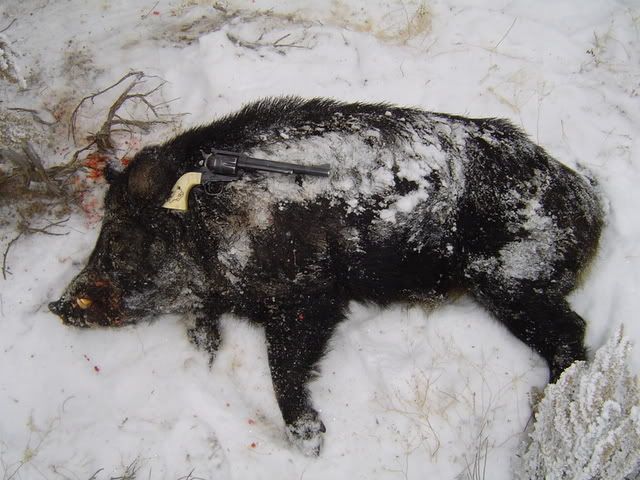 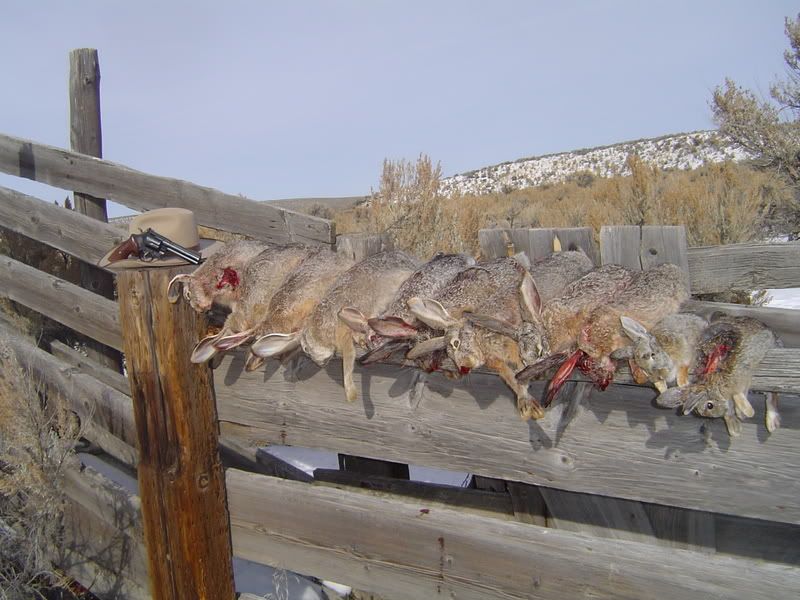
|
|
|
|
|
#22 |
|
Senior Member
Join Date: June 12, 2006
Posts: 162
|
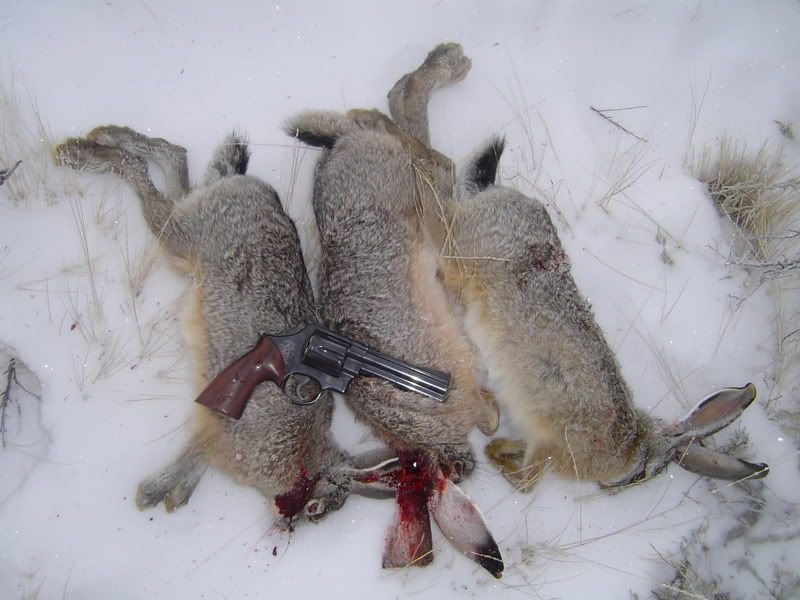 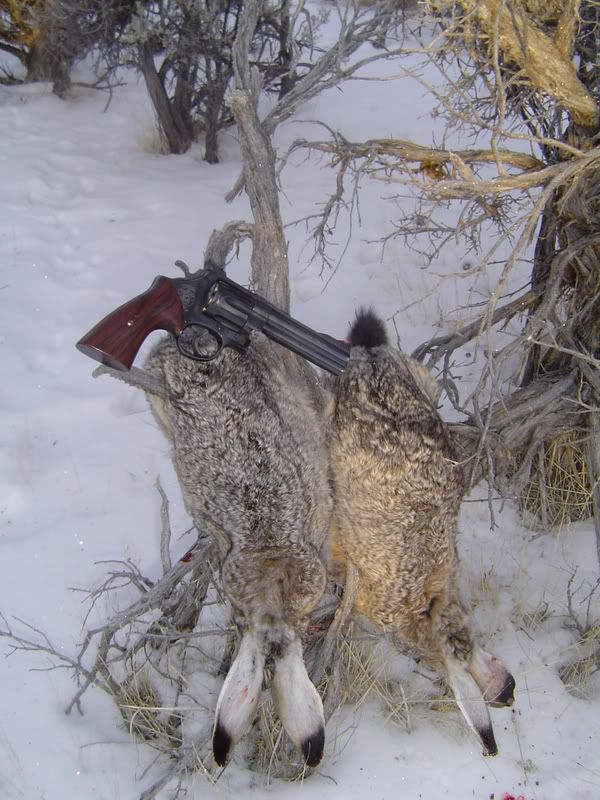 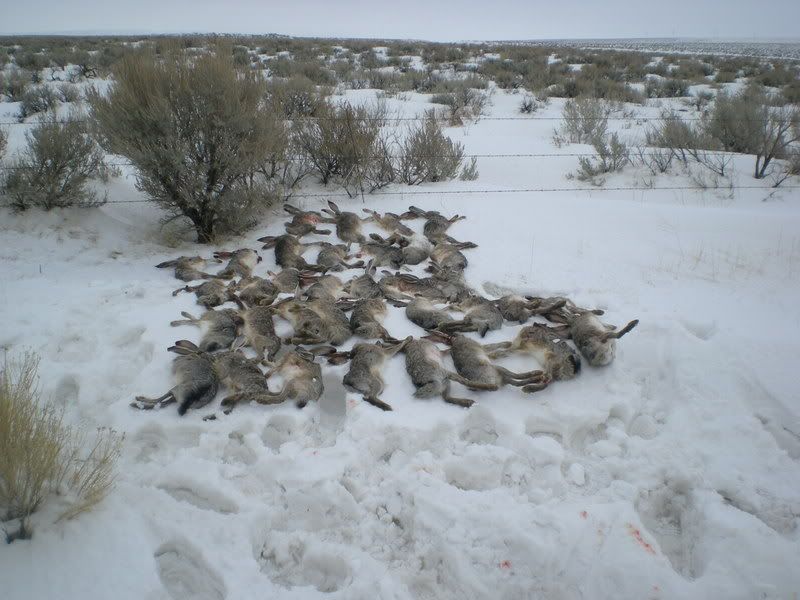
|
|
|
|
|
#23 |
|
Senior Member
Join Date: June 12, 2006
Posts: 162
|
Did I mention that I liked Smith .44s?
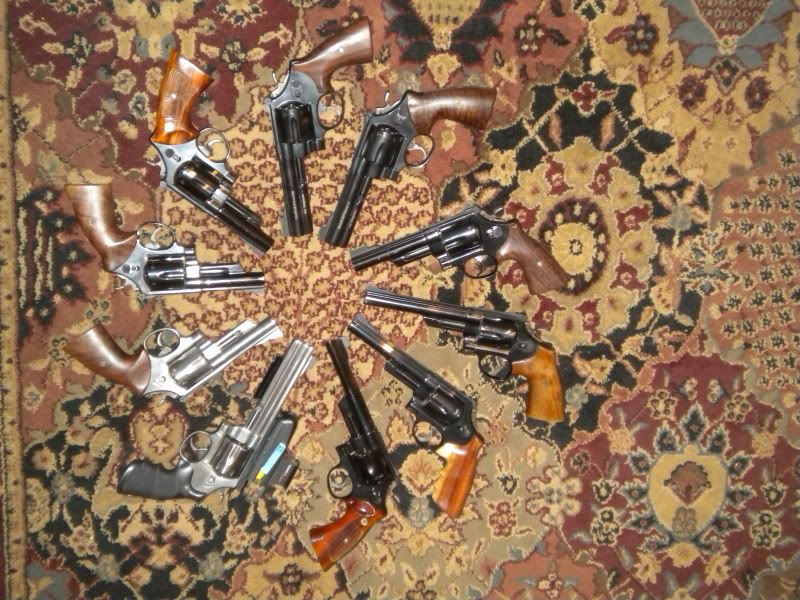 Anyways, The 8.5 grain Unique load with a good 240 grain cast SWC is as about ideal as you can get for an easy shooting practice bullet for punching paper or punching holes in desert Jacks. |
|
|
|
|
#24 |
|
Senior Member
Join Date: July 12, 2011
Location: Top of the Baltic stack
Posts: 6,079
|
I have a .44 which I found to be a bit of a handful.
I have shot .44 Spl. This will address your needs perfectly, provided you can find/afford it. I have also bought reloading gear, in transit by courier as I type. I've ordered 200gr bullets and I'll be buying a midium to fast burning powder. I'll soon find out how that works for me. Finally, I can very close to selling the gun because of the same jolt you described. That is no longer the case. A set of replacement grips for my Redhawk and the excellent information posted in this thread all helped me enjoy the .44 a great deal. I suggest reading the linked thread, checking you're doing everything to make your existing loads as comfortable as they can be before deciding whether or not spending a lot on reloading gear is required. For me, although I'd now be happy to shoot the 240gr factory loads, it is mainly the cost and availability that has made reloading more logical together with the chance to learn something new.
__________________
When the right to effective self-defence is denied, that right to self-defence which remains is essentially symbolic. Freedom: Please enjoy responsibly.
|
|
|
 |
|
|